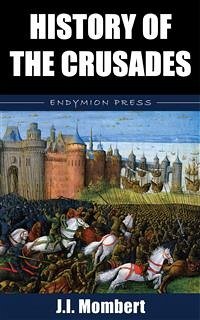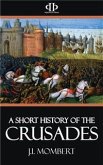In tracing the causes of the Crusades, that fearful drama whose nine acts ran the weary length of nearly two centuries, and at a low computation cost Europe two millions of lives, the word itself becomes our guide. The dictionaries give the obsolete croisade as well as the modern form crusade, and plainly show that the word, like the thing itself, is of French origin, and in the first instance denoted a league of Christians against heretics and infidels, especially miscreants of the Mohammedan faith; afterwards it was applied to Christian expeditions undertaken in vindication of the right of pilgrims to visit the Holy Sepulchre. These pilgrims wore on their garments a cross, the sign and pledge of their new vocation. Thus the French croix, cross, gave to the expeditions the name croisade, crusade, and to the pilgrims that of crusaders. Public opinion in the tenth and eleventh centuries approve as holy not only the primary object of the crusades viz; free access to the Holy Sepulchre, but also the conquest of the Holy Land, into which it speedily expanded, and for this reason the crusades are often defined as Holy Wars. A holy war may justly strike us as a strange combination, especially when we call to mind the incontestable fact that of all wars those called holy are the most sanguinary and cruel...
Bitte wählen Sie Ihr Anliegen aus.
Rechnungen
Retourenschein anfordern
Bestellstatus
Storno









